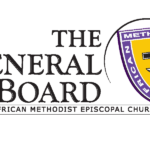Reconsidering Gangsta Rap: The Case of President Donald Trump
By D’Weston Haywood, Ph.D., Contributing Writer
The country is still reeling from the unprecedented events of January 6, 2021, when the certification of the presidential election was abruptly interrupted by a homegrown insurrection at the Capital that was incited by President Donald Trump. Pundits and scholars will expend decades, assessing that fateful day, debating its aftermath, and Trump’s second impeachment—an ignominious badge held by no other US President—as well as accounting for the lives and US credibility lost. Any decent analysis must contend with the outgoing President’s rhetoric on that particular day and in its preceding weeks, rhetoric that held spellbinding power over his supporters. This power is rooted in the fact that Trump stands as America’s greatest gangsta rapper.
We are wrong to think that gangsta rap is only a genre of hip-hop that emerged from marginalized black youth, living in post-industrial inner cities in the 1980s. It became popular and infamous, as many critics charged, for its vulgar, violent, and nihilistic rhetoric. By the mid-1990s, gangsta rap reached its apex and a number of politicians from both sides of the aisle took very public stands against the music, its consumers, and the pathologies it was thought to produce among fans. They also worked to create legislation condemning the music, often holding up rappers who faced run-ins with the law as reigning examples of the moral bankruptcy of youth, and Black youth in particular. Here, rap—its culture and fans—represented a thoroughly criminal element that inspired countless numbers of people to do destructive things.
Yet, as Trump has demonstrated throughout his presidency and certainly on January 6, politicians long condemned gangsta rap expressed by inner-city Black youth in order to embrace it by members of their own ilk, privileging its influential power and popular resonance only in certain political and racialized forms. Put another way, politicians have embraced a gangsta rap with state and policy implications. Consider rhetoric revolving around the War on Drugs through the 1970s and 1980s, calls for “law and order,” “fiscal responsibility,” and getting “tough on crime” phraseology long directed at Black people.
This overlooked but longstanding side of gangsta rap has now culminated in the ascendency and continued influence of the greatest gangsta rapper: Donald Trump. His gangsta rap appeals to aggrieved white people, who feel marginalized and stigmatized, handicapped by political correctness, abandoned by changing demographics, and nostalgic for unchecked white power. Throughout his presidency, Trump remained skilled in vocalizing so much of what they already thought and wanted sanction to do. January 6 was the culmination of this.
The idea that gangsta rap revels in crass and violent rhetoric, a dangerous machismo and bravado that altogether rejects authority and consequences, somehow remains tied in the popular imagination to hip-hop, even as two Supreme Court seats were stolen, calculated attacks on the voting rights of people of color surge, white militia movements grow, and throngs of rabid followers hung on every word of one man who incited them to lay siege to American democracy.
D’Weston Haywood is Associate Professor of History at Hunter College, City University of New York. His research and teaching center on histories of Black protest, Black cultural politics, and Black masculinity. He is currently completing a historical monograph, Let Us Make Men: Black Newspapers and a Manly Vision of Racial Advancement.





